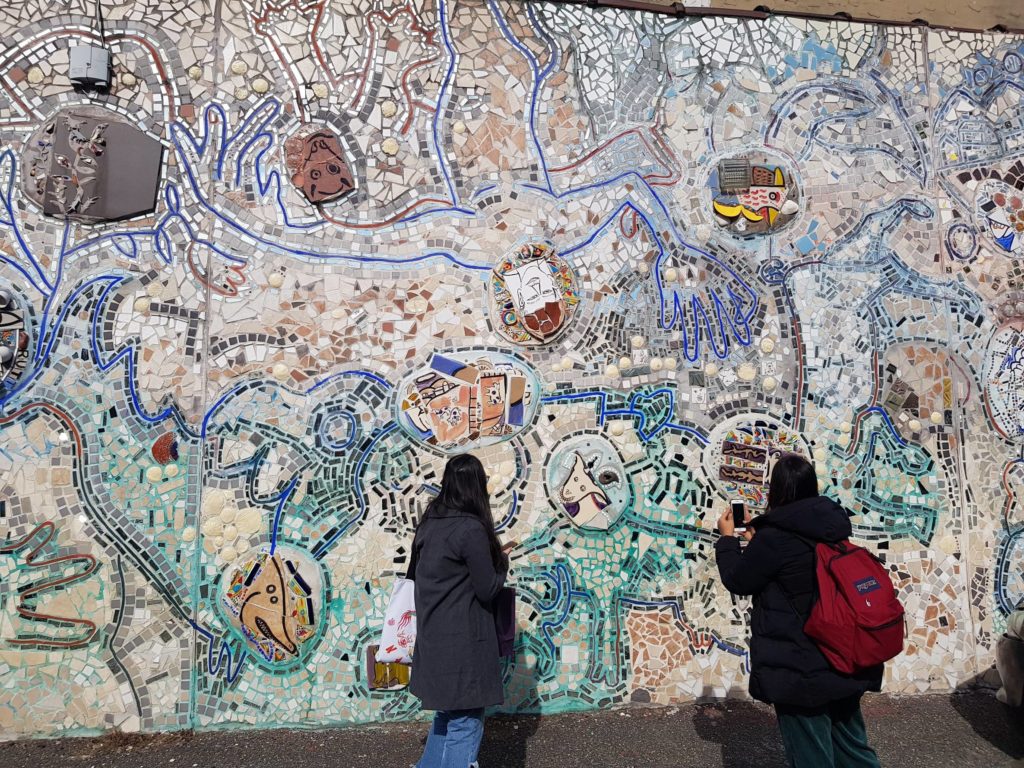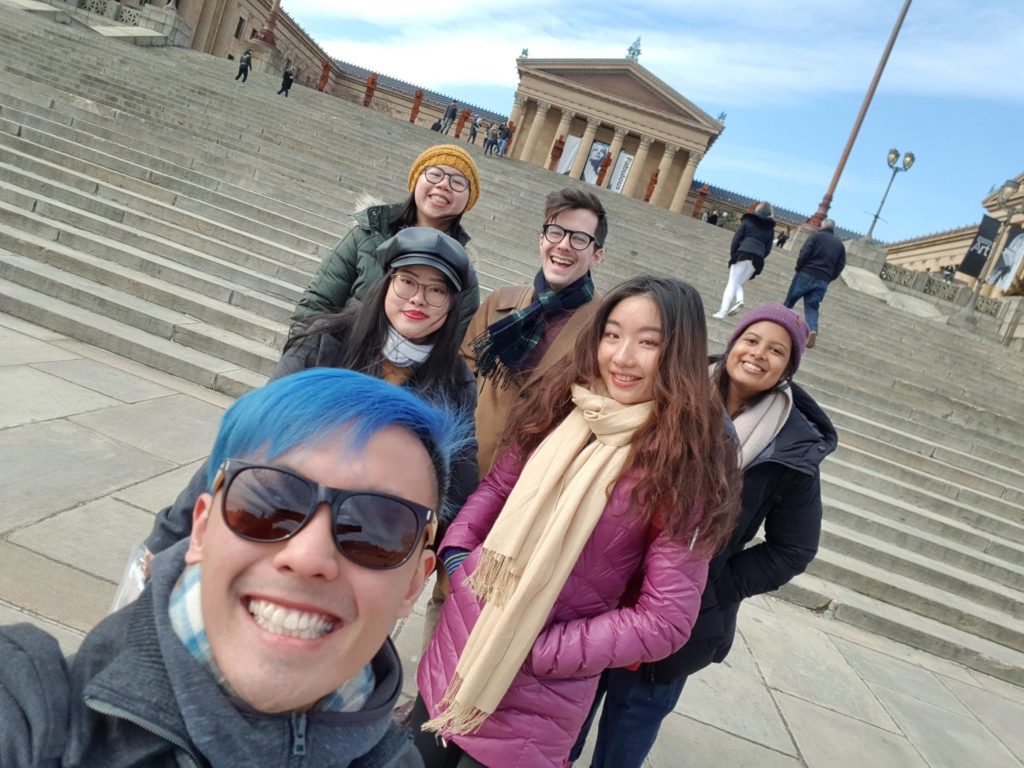Ancient Epics course enables cross-cultural exchange with University of Pennsylvania
 Image provided by Carson Huang.
Image provided by Carson Huang.
This year, Associate Professor of Humanities (Literature) Mira Seo and her students navigated the Trojan War in the Iliad, followed Rama’s adventures in the Ramayana, and visited museums in the University of Pennsylvania (UPenn) in the US. The trip to Philadelphia, which happened between 23 February and 3 March 2019, was part of a mini cross-cultural exchange for Assoc Prof Seo’s Ancient Epics course.
The Ancient Epics course focuses on close readings of five different ancient works: the Epic of Gilgamesh, Homer’s Odyssey and Iliad, Valmiki’s Ramayana, and Vergil’s Aeneid. Reading these texts comparatively encouraged students to consider different cultural specificities, thus opening an avenue for a cross-cultural exchange between Yale-NUS College and UPenn. This idea for collaboration was born from Assoc Prof Seo’s friendship with UPenn Professor of Classical Studies Peter Struck. They wanted to share their teachings cross-culturally, and the trip was the perfect opportunity for them to impart their knowledge to students from both universities.
“We were hoping to give our students access to other perspectives on the texts, from other professors and other students through online and in person encounters. The trips themselves were designed to create maximum engagement with the special visual and archaeological resources on the ancient Middle East and the ancient Mediterranean at the University of Pennsylvania museum (or Penn Museum), and the Asian Civilisations Museum and other experts in the South Asian and South East Asian traditions here in Singapore,” said Assoc Prof Seo.
At UPenn, the students worked together in mixed groups to create a ‘virtual exhibition’ related to themes in the text. These ‘exhibitions’ took the form of presentations, where students took pictures of artefacts they picked and displayed them to the class. The presentations were results of speaking to curators and docents at museums, library visits, and combined class discussions. For Assoc Prof Seo, a highlight was having Professor of Classical Studies and author Emily Wilson discuss the Odyssey with the class. Prof Wilson is the first woman to publish an English translation of the Odyssey.
The trip to the Penn Museum proved to be a cultural and intellectul treat as students were able to see cuneiform tablets that were over 3,000 years old. A cuneiform tablet is a clay tablet that depicts cuneiform, one of the earliest modes of writing that was created around 3200 BC. The treat did not stop there – the students met James B. Pritchard Professor of Archaeology C. Brian Rose, an archaeologist who has excavated at the ancient cities of Troy and Gordion.
“It was an amazing experience seeing the texts we had studied in their original form (the Cuneiform tablets). It’s so rare to get a chance to go through a museum with someone who actually dug up some of the artefacts there. Professor Rose told us so much more than what we would’ve understood if we had walked around the museum ourselves,” said Alysha Chandra (Class of 2021).
In Singapore, the UPenn students were introduced to the city’s different slices of culture. They went on a guided tour to the Asian Civilisation Museum, visited the National University of Singapore’s Baba House, and engaged with the docents at the Indian Heritage Centre. Apart from seminars at Yale-NUS College, the students also learned some basic Bharatanatyam (a genre of Indian classical dance) poses at the acclaimed Bhaskar’s Arts Academy, a highly regarded dance academy founded by K. P. Bhaskar, a pioneer of Indian dance in Singapore and his wife Santha Bhaskar, an award-winning choreographer. Needless to say, the Yale-NUS College students were also enthusiastic in exposing the UPenn students to Singaporean food.
“What I coerced the UPenn students to do (with consent) was to wake up at 7am and go to a different hawker centre every morning to get breakfast, Singapore style. Largely, the activities I brought them to do involved food and lots of hawker centres,” said Carson Huang (Class of 2020). “I often tell the people whom I meet abroad that the way to experience Singapore is to eat your way through it; that week finally gave me the chance to walk the talk.”
Despite coming from different backgrounds, both groups of students were inspired by their readings’ concept of xenia, or warm hospitality. This created an atmosphere where friendships were forged quickly. Said Assoc Prof Seo, “Professor Struck and I are convinced that having a shared intellectual experience as the foundation for this exchange brought the students together remarkably quickly. The whole experience also showed us how compatible our programmes are, and we hope that this will be the first step towards a regular UPenn and Yale-NUS exchange.”
“I’d love to do more travel with students that enriches the course material and also allows them to experience other academic institutions,” she said. “We have so much to offer other programmes because of the unique scope of our curriculum, and this is a different model to bring us in touch with the rest of the world.”
 Yale-NUS College students in front of the Philadelphia Museum of Art. Image provided by Carson Huang.
Yale-NUS College students in front of the Philadelphia Museum of Art. Image provided by Carson Huang.





